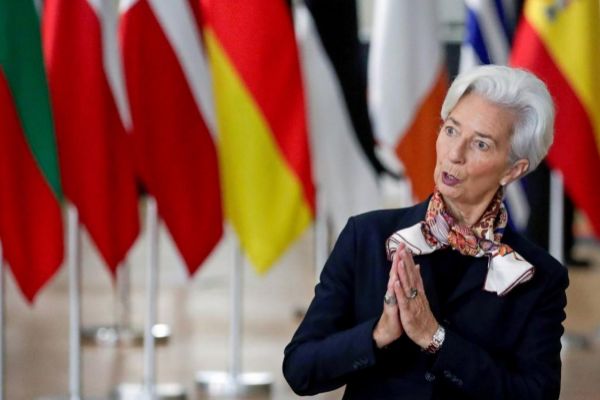The current scenario of negative interest rates in Europe promoted by the European Central Bank (ECB) has ended up impacting the punished electric consumer. The National Commission of Markets and Competition (CNMC) will have to pay 0.5% annual interest for the custody of the millionaire current account where the surplus of the electricity sector is deposited, this is the amount of more than those paid consumers through the fixed part of their receipts to remunerate regulated system costs such as networks or premiums for renewable energy.
The regulator has tried in recent weeks to carry out a public tender to get a financial entity that is responsible for the free management of this account after receiving a notice of change of conditions by the Santander Bank - current manager of the deposit after inheriting it from the Popular in 2017- to establish a negative interest rate of 0.5% for its custody. Currently the funds deposited amount to around 950 million euros , so the payment would amount to 5 million euros annually. However, the process ended on November 26 and was deserted, since no other bank considered attractive the possibility of managing these funds and offering a positive return or equal to zero.
Sources in the financial sector link the failure of the tender to the current situation of interest rates in Europe, with Euribor at -0.27%. No bank is willing to pay for a liquidity for which they then have to pay the ECB 0.5% interest if they are not able to convert those funds into credit, something increasingly difficult for the economy to cool down. The CNMC is no exception, since banks are already transferring this cost to large corporate or patrimonial clients and nobody can deny today that this is not done in the future with the retail network.
The regulator has tried by all means to avoid this payment after the announcement of the change of conditions of Santander that entered into force last November. The Banco Popular absorbed in 2017 had promised not to charge anything for the account, which Santander now considers out of the market.
The regulator also refused in the drafting of the tender to pay commissions, so the budget was zero euros. "In no case shall the CNMC or the beneficiaries of any expense related to the current account proceed. In particular, there will be no charge for commissions in favor of the successful tenderer for operations related to the opening, management, cancellation and movements of the current account. When the application of the bid submitted by the bidder that is a successful bidder results in a negative final interest (less than zero), the interest rate to be paid will be equal to 0 ", highlighted the public body in the tender specifications bid.
After knowing the change of conditions, the CNMC took all the money from the current account and deposited it in the Bank of Spain. However, this movement is not going to ease its financial burden since the regulator also charges the regulator 0.5% per service commission. This maneuver would allow at least five million euros to end up entering the accounts of the Bank of Spain and, therefore, those of the Public Treasury, instead of the balance of the entity chaired by Ana Botín. However, financial sources predict that it will be the bank that ends up taking over the account as it already does with other eight current accounts where money is distributed from the electricity sector.
The five million euros will be deducted annually from the electricity surplus. This is a fund managed by the CNMC to meet possible extraordinary costs of the energy sector, such as the payment of some of the thirty international lawsuits that the country faces for the cut to the regulated remuneration of energy Renewable in 2013. In addition, the current legislation provides that this amount can be used to reduce the huge debt of the sector and contribute to lowering the electricity bill of millions of consumers.
It is not the first time that the CNMC withdraws its money from this checking account to avoid being in danger. In the spring of 2017, with the Banco Popular in stock free fall, the public body decided to divert the 950 million euros to the Bank of Spain for fear of bankruptcy of the bank that would end up spilling all the savings. Sources close to the organization remind that on that occasion the action was more than justified since the Deposit Guarantee Fund would only have covered the first 100,000 euros, although the change contributed to worsening the state of the entity and its sale to Santander for a euro.
According to the criteria of The Trust Project
Know more
